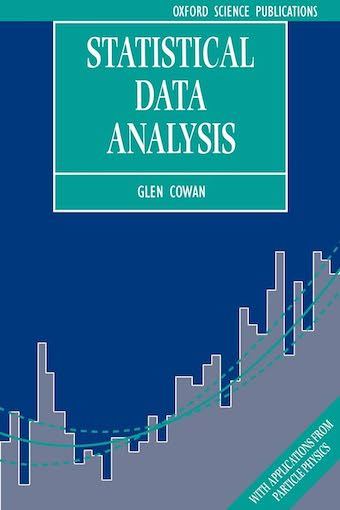In this course, you will get a deeper understanding of statistical treatment of a set of input data. The course provides an overview of the concepts of probability theory and the extraction of knowledge from measurements or observations. You will learn how to robustly extract information from uncertain observations, e.g. the separation of signals from backgrounds, and to quantify the significance of a hypothesis test. The course discusses various approaches to statistical data analysis, ranging from the “Maximum Likelihood” and the “Least Square” methods to Monte Carlo techniques. The course will culminate in a project of statistical nature that is connected to the research of the doctoral student.
FSH3910 Statistical Methods in Physics 7.5 credits

In this course, you will get a deeper understanding of statistical treatment of a set of input data. The course provides an overview of the concepts of probability theory and the extraction of knowledge from measurements or observations. You will learn how to robustly extract information from uncertain observations, e.g. the separation of signals from backgrounds, and to quantify the significance of a hypothesis test. The course discusses various approaches to statistical data analysis, ranging from the “Maximum Likelihood” and the “Least Square” methods to Monte Carlo techniques.
Information per course offering
Course offerings are missing for current or upcoming semesters.
Course syllabus as PDF
Please note: all information from the Course syllabus is available on this page in an accessible format.
Course syllabus FSH3910 (Autumn 2023–)Content and learning outcomes
Course contents
Intended learning outcomes
At the end of the course, the students will be able to apply the following concepts to their research:
- Meaning of confidence intervals, and how to estimate them statistically from a set of data.
- Separation of signal and background.
- Monte Carlo techniques and the concept of toy Monte Carlos.
- The concepts of fitting, and the related uncertainties including covariance matrices.
- Hypothesis testing and limit setting, using likelihood functions with profiling over parameters
- representing uncertainties.
Literature and preparations
Specific prerequisites
PhD student, aimed primarily at students following the PhD program in Physics. It is assumed that the student has basic knowledge of statistics from their undergraduate studies. English B / English 6
Literature
Examination and completion
Grading scale
Examination
- SEM1 - Seminars, 2.5 credits, grading scale: P, F
- PRO1 - Project, 5.0 credits, grading scale: P, F
Based on recommendation from KTH’s coordinator for disabilities, the examiner will decide how to adapt an examination for students with documented disability.
The examiner may apply another examination format when re-examining individual students.
If the course is discontinued, students may request to be examined during the following two academic years.
Examiner
Ethical approach
- All members of a group are responsible for the group's work.
- In any assessment, every student shall honestly disclose any help received and sources used.
- In an oral assessment, every student shall be able to present and answer questions about the entire assignment and solution.